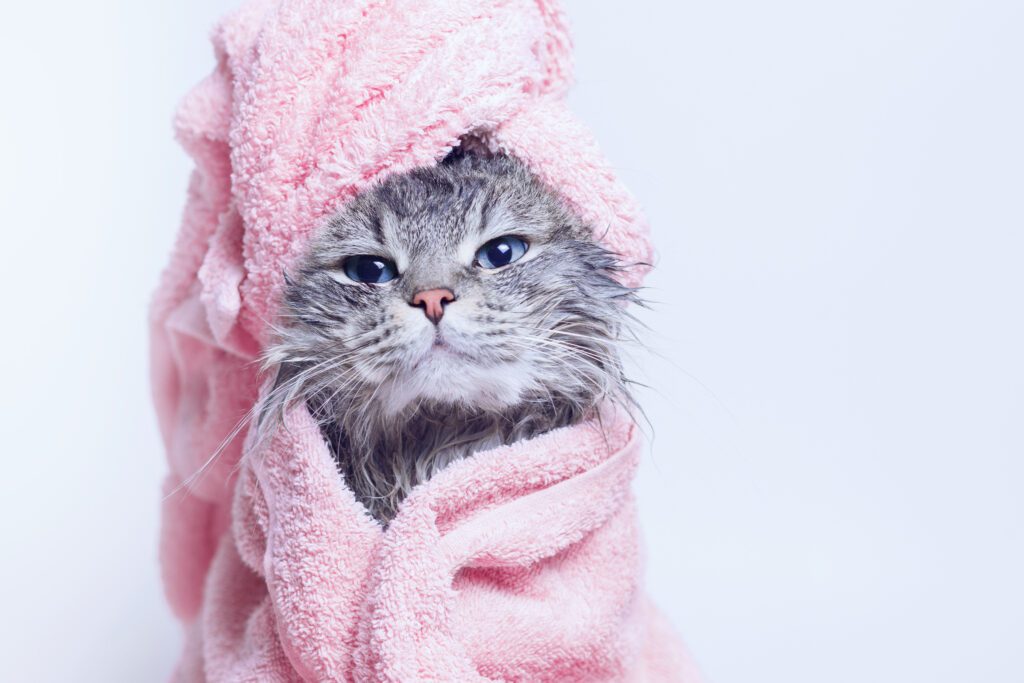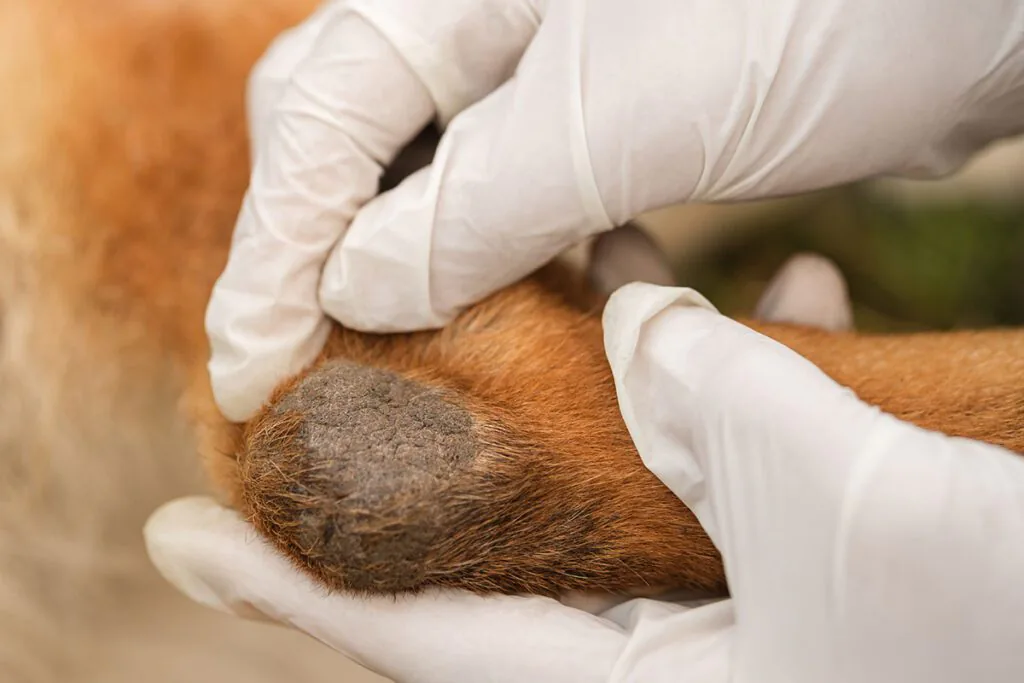Do You Need to Bathe Cats? Navigating the World of Feline Hygiene
When it comes to maintaining their cleanliness, cats are often viewed as self-sufficient pets. Their meticulous grooming rituals are a marvel to observe. However, as a pet owner, you might wonder if there are occasions when your cat might need a helping hand. Is it necessary, or even advisable, to bathe your cat? This blog, brought to you by Brown Veterinary Hospital in Terre Haute, IN, aims to explore this topic in more depth.

When Should You Consider Bathing Your Cat?
Cats typically do an excellent job of cleaning themselves, but there are circumstances in which a bath provided by you might be necessary.
If They Have a Medical Condition that Requires Bathing
Some health conditions, such as skin allergies, fungal infections, or parasites, may require medicated baths as part of the treatment plan. It’s essential to follow your veterinarian’s advice in these situations.
If They are Unable to Groom Themselves
Aging, obesity, or illness can hinder a cat’s ability to groom themselves effectively. In these cases, a bath can help them maintain their hygiene and comfort.
If Their Skin and Coat are Excessively Dirty
Sometimes, cats can get into messy situations. If your cat has rolled in something sticky, toxic, or particularly smelly, a bath can be the safest and most thorough way to clean them.
The Benefits of Bathing Your Cat
While not a routine necessity, bathing your cat can have certain benefits:
Health Monitoring: Bathing can be an opportunity to check your cat for lumps, bumps, or skin issues that might not be noticeable otherwise.
Improved Coat Quality: For long-haired breeds, occasional bathing can help prevent mats and keep your cat’s coat in top condition.
Allergy Management: If someone in your household has allergies to cats, regular bathing may reduce allergens.
Understanding the Risks of Bathing Your Cat
It’s important to recognize that bathing can pose some risks for your cat:
Stress and Anxiety: Many cats find the experience of being bathed stressful, which can lead to anxiety or aggressive behavior.
Skin Issues: Overbathing can strip natural oils from your cat’s skin, leading to dryness or irritation.
Water Safety: Cats are not natural swimmers, so there’s a risk of water inhalation or drowning if they are not handled carefully.
Signs of Stress to Watch For
During your cat’s bath, watch for signs of stress such as excessive meowing, panting, drooling, or attempts to escape.
When to Seek Professional Help for Cat Bathing
In some cases, it’s best to turn to professionals to bathe your cat safely. Veterinarians or professional groomers have the skills and equipment necessary to safely handle and bathe cats, especially those with medical needs. Furthermore, a professional groomer or a licensed veterinarian can do more to ensure the safety of your cat (and you) if your cat becomes fractious and aggressive.
Finally, certain cat breeds have special grooming needs or health conditions that may require specific bathing techniques, which only a professional can provide.
Tips for Safely Bathing Your Cat at Home
If you decide to bathe your cat at home and your veterinarian approves this course of action, here are some tips for a safe and less stressful experience:
Brush Them First: To make the process smoother, brush your cat to remove loose fur and mats before the bath.
Prepare in Advance: Have all your bathing supplies ready — cat-safe shampoo, towels, and a non-slip mat.
Calm Environment: Choose a quiet, enclosed space to make your cat’s bathing experience less stressful.
Gentle Approach: Use lukewarm water and speak in a soothing tone throughout the process. Do not use a shower nozzle with high water pressure.
Be Quick and Efficient: Cats generally prefer a quick bath, so aim to be as efficient as possible.
Thorough Drying: After the bath, wrap your cat in a towel and gently pat them dry.
Positive Reinforcement: Offer your cat treats and affection after the bath to create a positive association.
Making Informed Decisions About Cat Bathing
Understanding when and how to bathe your cat is part of being a responsible pet owner. Remember, each cat is unique, and what works for one might not suit another. If you’re unsure about the best approach for your cat, or if they need specialized care, don’t hesitate to contact Brown Veterinary Hospital at (812) 645-0715 for advice or to schedule an appointment. We’re here to support you and your cat’s health and well-being.
Recent Posts
About Brown Veterinary Hospital
We are here to serve as your partner in keeping your four-legged family member healthy, ensuring you have all the tools you need to provide them with a lifetime of outstanding care. Our animal hospital in Terre Haute offers a full range of services to nurture and extend your pet’s life, from wellness and preventative care to critical care, exotic pet care, and dermatology.





